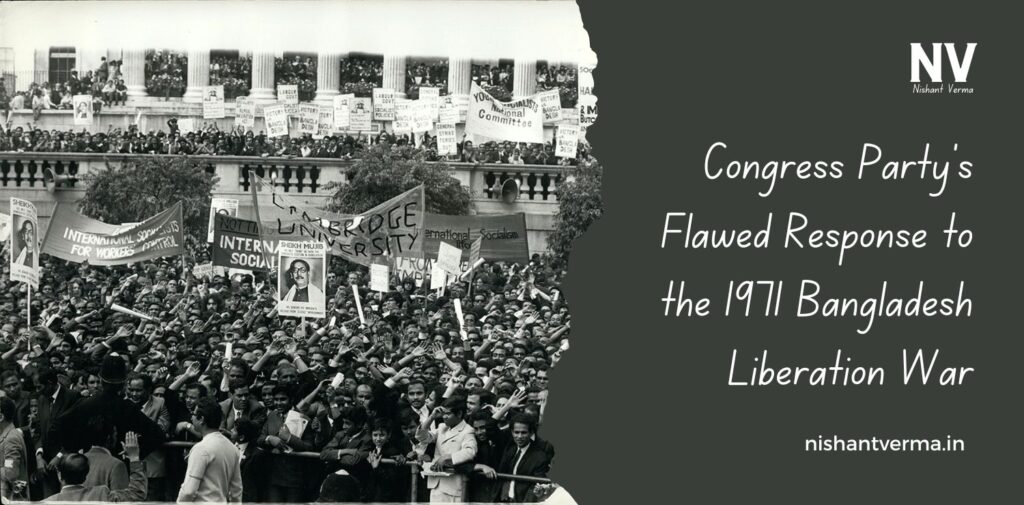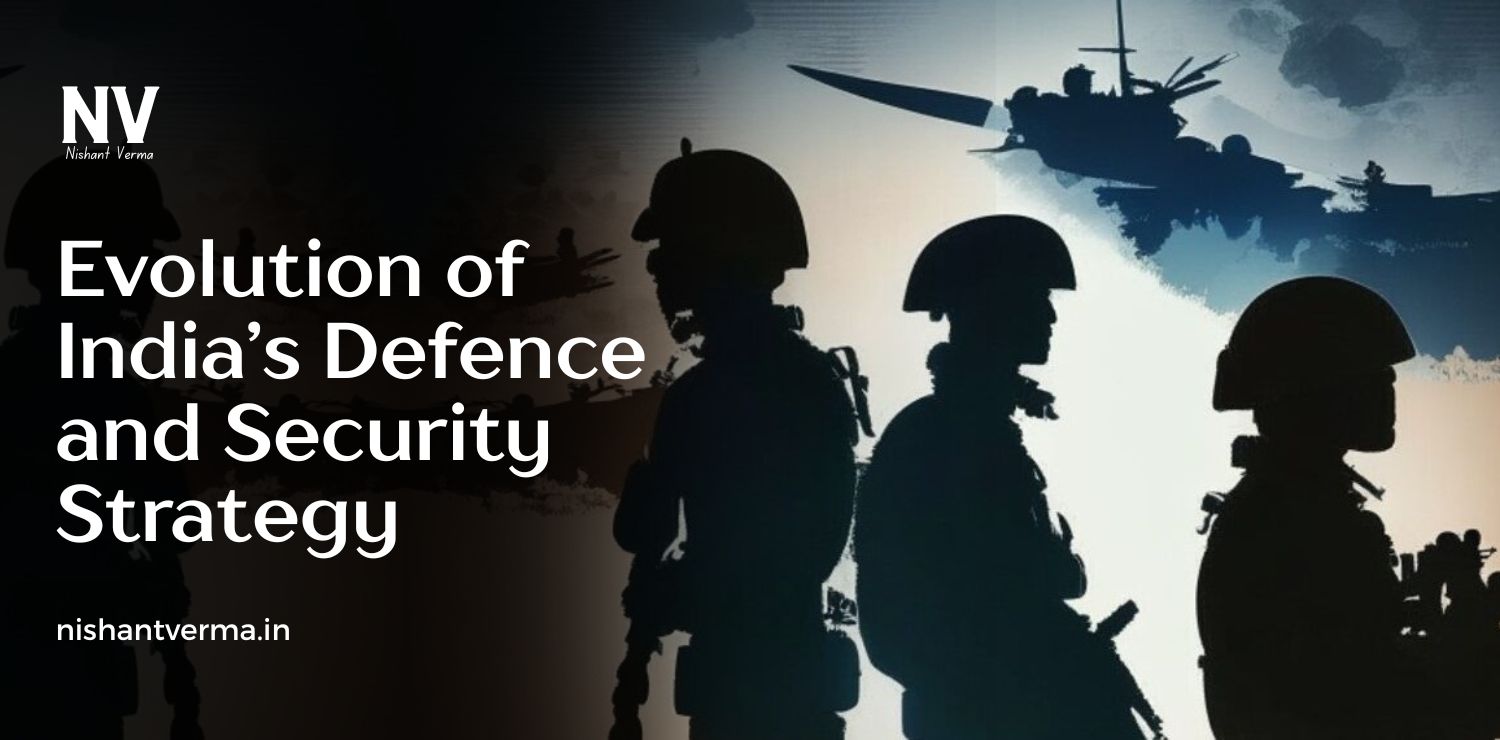The 1971 Bangladesh Liberation War was a pivotal event in South Asian history. It led to the creation of Bangladesh, a new nation carved out of Pakistan, after a brutal struggle for independence. While the war is remembered for the victory of the Bangladeshis and the role of India in supporting them, the Congress Party, which was in power in India at the time, faced criticism for its initial response to the crisis.
Background of the 1971 Bangladesh Liberation War
The roots of the 1971 war go back to the long-standing tensions between East Pakistan (now Bangladesh) and West Pakistan (the current Pakistan). The people of East Pakistan, who spoke Bengali and had distinct cultural identities, felt neglected and oppressed by the government in West Pakistan, which was dominated by Urdu-speaking elites.
In December 1970, East Pakistan held elections, and the Awami League, led by Sheikh Mujibur Rahman, won a majority of seats. However, the government in West Pakistan, led by General Yahya Khan, refused to recognize the results and take steps toward transferring power. This refusal sparked widespread protests and violence in East Pakistan. Eventually, the Pakistani military launched a brutal crackdown, which led to large-scale killings and human rights abuses.
As the violence escalated, millions of refugees fled to neighboring India, putting immense pressure on India’s resources and border security. The situation became increasingly tense, and it was clear that a major conflict was on the horizon.
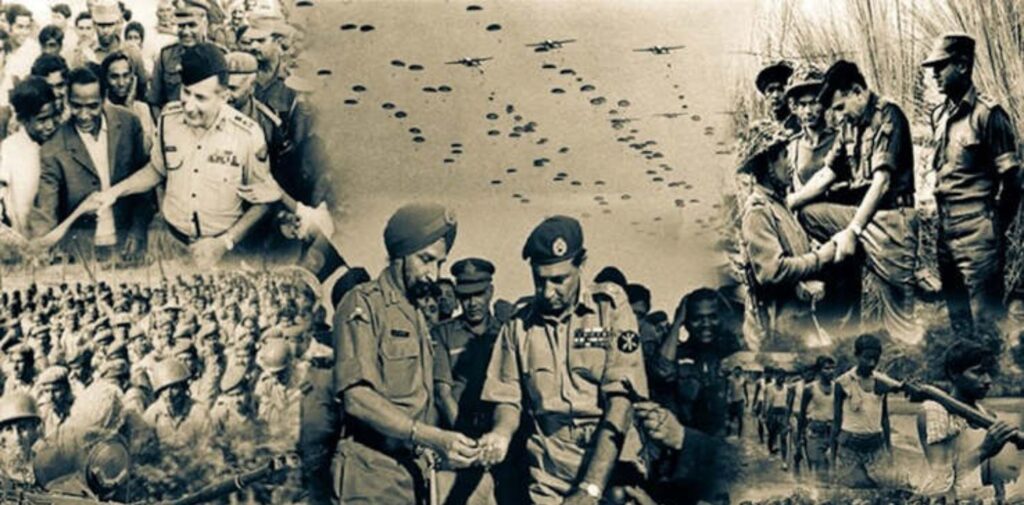
Congress Party’s Initial Response
At the time of the Bangladesh Liberation War, Indira Gandhi, the leader of the Congress Party, was the Prime Minister of India. Initially, India’s response to the crisis was cautious and diplomatic. Despite the atrocities being committed in East Pakistan, the Congress-led government did not immediately intervene in the conflict. This delay in action was partly due to concerns about getting involved in a war with Pakistan, a neighboring country, and the potential international consequences.
The Congress Party, led by Indira Gandhi, was also concerned about public opinion. Although many people in India sympathized with the Bengali people and their struggle for independence, the Indian government was hesitant to openly support the movement, fearing that it could lead to destabilization and a larger regional conflict.
India’s Support for Bangladesh’s Liberation
As the violence worsened and the refugee crisis grew, the situation became untenable for India. The Congress government, under Indira Gandhi, eventually decided to take action. In December 1971, after much international pressure and diplomatic efforts, India officially entered the war, supporting the independence movement in East Pakistan.
India’s military intervention was swift and decisive. Indian forces, alongside Mukti Bahini (Bangladesh’s freedom fighters), launched a coordinated attack on Pakistani forces in East Pakistan. Within two weeks, the Pakistani military was defeated, and Bangladesh was declared an independent nation.
India’s intervention was crucial in the success of the Bangladesh Liberation War. The Indian military played a significant role in weakening Pakistani forces, and the people of East Pakistan were able to realize their dream of an independent Bangladesh.
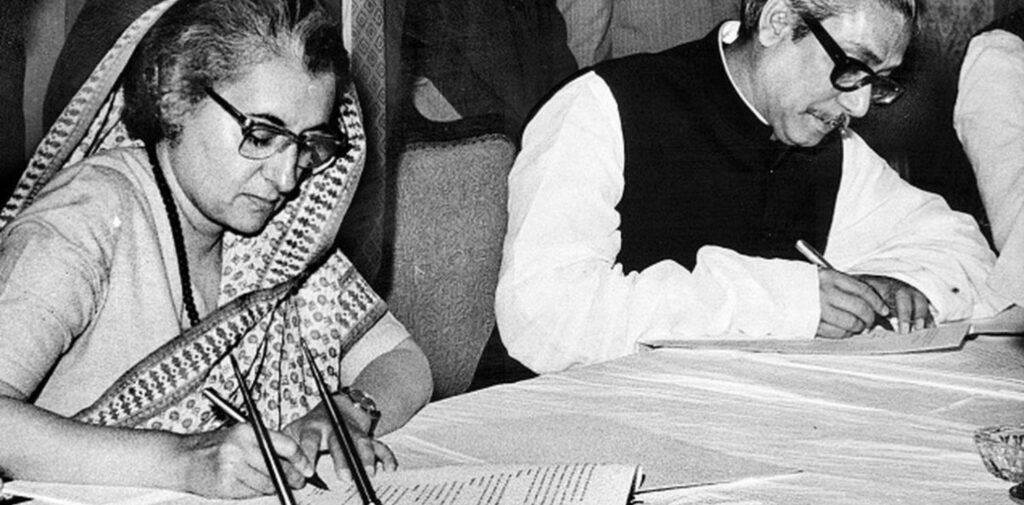
The Flaws in Congress Party’s Response
While India’s intervention in 1971 was ultimately successful and resulted in the creation of Bangladesh, the Congress Party’s initial hesitation to intervene in the crisis was a point of criticism. Here are some of the major flaws in the Congress Party’s response:
- Delayed Action:The Congress Party, under Indira Gandhi, waited too long to act, even as atrocities were being committed in East Pakistan. By the time India intervened, thousands of innocent lives had already been lost. The delay in intervention also allowed Pakistan to strengthen its military presence in East Pakistan, making the war even more difficult.
- Diplomatic Missteps:Initially, the Congress Party tried to resolve the crisis through diplomacy, but this did not bring about any meaningful change. The Pakistani military continued its crackdown, and the international community’s response was also limited. India’s diplomatic efforts were not as effective as military intervention in bringing an end to the conflict.
- Overestimating the International Response:The Congress Party placed too much faith in the possibility of international intervention or diplomatic solutions to the crisis. While India did receive some international support, particularly from the Soviet Union, the situation required a more immediate and assertive military response, which came too late.
- Failure to Fully Recognize the Scale of the Crisis:Initially, the Indian government did not fully understand the scale of the human rights violations happening in East Pakistan. The mass killings, rapes, and forced migrations of civilians were only acknowledged much later, leading to criticism that India had not acted swiftly enough to stop the violence.
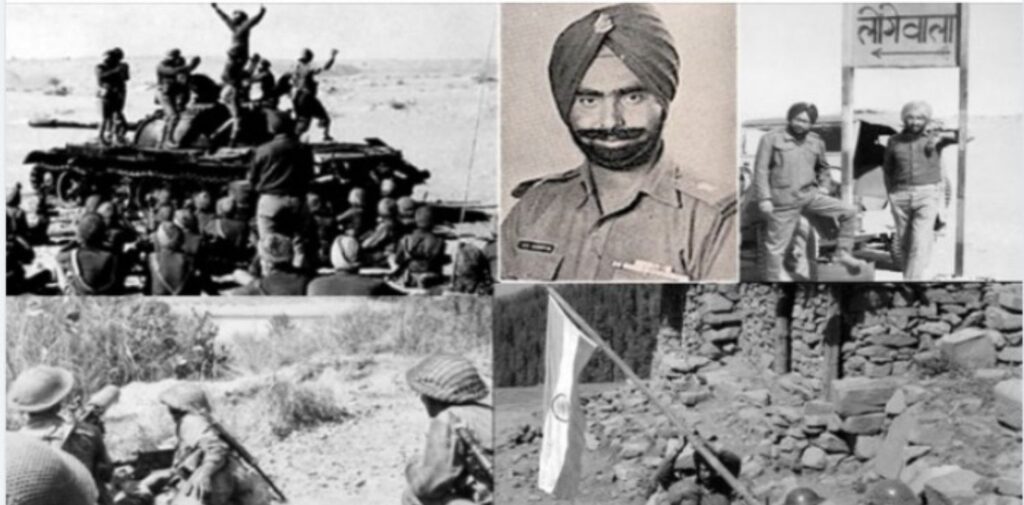
Conclusion: 1971 Bangladesh Liberation War
While India’s military intervention in the 1971 Bangladesh Liberation War led to the creation of a new nation and was a major victory for India and Bangladesh, the Congress Party’s initial response was flawed. The delay in action, over-reliance on diplomacy, and failure to fully grasp the scale of the crisis led to unnecessary loss of life and prolonged suffering for the people of East Pakistan.
However, once the Congress Party, under Indira Gandhi, took the bold step of supporting Bangladesh’s liberation, it played a crucial role in ending the war and ensuring the independence of Bangladesh. The lessons learned from the 1971 war highlighted the importance of swift action in addressing humanitarian crises and regional conflicts.

